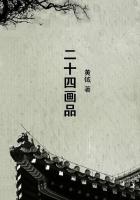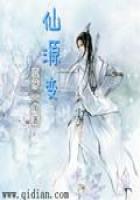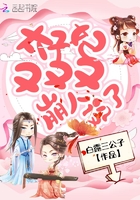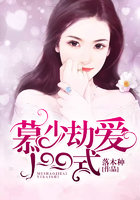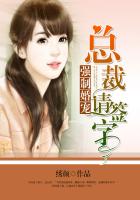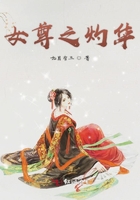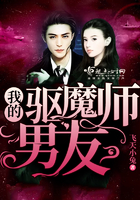Ch`en Chen-sun of the Sung dynasty has the note: --Military writers look upon Sun Wu as the father of their art. But the fact that he does not appear in the TSO CHUAN, although he is said to have served under Ho Lu King of Wu, makes it uncertain what period he really belonged to.
He also says: --
The works of Sun Wu and Wu Ch`i may be of genuine antiquity.
It is noticeable that both Yeh Shui-hsin and Ch`en Chen-sun, while rejecting the personality of Sun Wu as he figures in Ssu-ma Ch`ien's history, are inclined to accept the date traditionally assigned to the work which passes under his name. The author of the HSU LU fails to appreciate this distinction, and consequently his bitter attack on Ch`en Chen-sun really misses its mark. He makes one of two points, however, which certainly tell in favor of the high antiquity of our "13 chapters." "Sun Tzu," he says, "must have lived in the age of Ching Wang [519-476], because he is frequently plagiarized in subsequent works of the Chou, Ch`in and Han dynasties." The two most shameless offenders in this respect are Wu Ch`i and Huai-nan Tzu, both of them important historical personages in their day. The former lived only a century after the alleged date of Sun Tzu, and his death is known to have taken place in 381 B.C. It was to him, according to Liu Hsiang, that Tseng Shen delivered the TSO CHUAN, which had been entrusted to him by its author. [29] Now the fact that quotations from the ART OF WAR, acknowledged or otherwise, are to be found in so many authors of different epochs, establishes a very strong anterior to them all, -- in other words, that Sun Tzu's treatise was already in existence towards the end of the 5th century B.C. Further proof of Sun Tzu's antiquity is furnished by the archaic or wholly obsolete meanings attaching to a number of the words he uses. A list of these, which might perhaps be extended, is given in the HSU LU; and though some of the interpretations are doubtful, the main argument is hardly affected thereby. Again, it must not be forgotten that Yeh Shui-hsin, a scholar and critic of the first rank, deliberately pronounces the style of the 13 chapters to belong to the early part of the fifth century. Seeing that he is actually engaged in an attempt to disprove the existence of Sun Wu himself, we may be sure that he would not have hesitated to assign the work to a later date had he not honestly believed the contrary. And it is precisely on such a point that the judgment of an educated Chinaman will carry most weight. Other internal evidence is not far to seek. Thus in XIII. ss. 1, there is an unmistakable allusion to the ancient system of land-tenure which had already passed away by the time of Mencius, who was anxious to see it revived in a modified form. [30] The only warfare Sun Tzu knows is that carried on between the various feudal princes, in which armored chariots play a large part. Their use seems to have entirely died out before the end of the Chou dynasty. He speaks as a man of Wu, a state which ceased to exist as early as 473B.C. On this I shall touch presently.
But once refer the work to the 5th century or earlier, and the chances of its being other than a bona fide production are sensibly diminished. The great age of forgeries did not come until long after. That it should have been forged in the period immediately following 473 is particularly unlikely, for no one, as a rule, hastens to identify himself with a lost cause. As for Yeh Shui-hsin's theory, that the author was a literary recluse, that seems to me quite untenable. If one thing is more apparent than another after reading the maxims of Sun Tzu, it is that their essence has been distilled from a large store of personal observation and experience. They reflect the mind not only of a born strategist, gifted with a rare faculty of generalization, but also of a practical soldier closely acquainted with the military conditions of his time. To say nothing of the fact that these sayings have been accepted and endorsed by all the greatest captains of Chinese history, they offer a combination of freshness and sincerity, acuteness and common sense, which quite excludes the idea that they were artificially concocted in the study. If we admit, then, that the 13 chapters were the genuine production of a military man living towards the end of the "CH`UNCH`IU" period, are we not bound, in spite of the silence of the TSO CHUAN, to accept Ssu-ma Ch`ien's account in its entirety? In view of his high repute as a sober historian, must we not hesitate to assume that the records he drew upon for Sun Wu's biography were false and untrustworthy? The answer, I fear, must be in the negative. There is still one grave, if not fatal, objection to the chronology involved in the story as told in the SHIH CHI, which, so far as I am aware, nobody has yet pointed out. There are two passages in Sun Tzu in which he alludes to contemporary affairs. The first in in VI. ss. 21: --Though according to my estimate the soldiers of Yueh exceed our own in number, that shall advantage them nothing in the matter of victory. I say then that victory can be achieved.
The other is in XI. ss. 30: --
Asked if an army can be made to imitate the SHUAI-JAN, Ishould answer, Yes. For the men of Wu and the men of Yueh are enemies; yet if they are crossing a river in the same boat and are caught by a storm, they will come to each other's assistance just as the left hand helps the right.
These two paragraphs are extremely valuable as evidence of the date of composition. They assign the work to the period of the struggle between Wu and Yueh. So much has been observed by Pi I-hsun. But what has hitherto escaped notice is that they also seriously impair the credibility of Ssu-ma Ch`ien's narrative. As we have seen above, the first positive date given in connection with Sun Wu is 512 B.C. He is then spoken of as a general, acting as confidential adviser to Ho Lu, so that his alleged introduction to that monarch had already taken place, and of course the 13 chapters must have been written earlier still.

